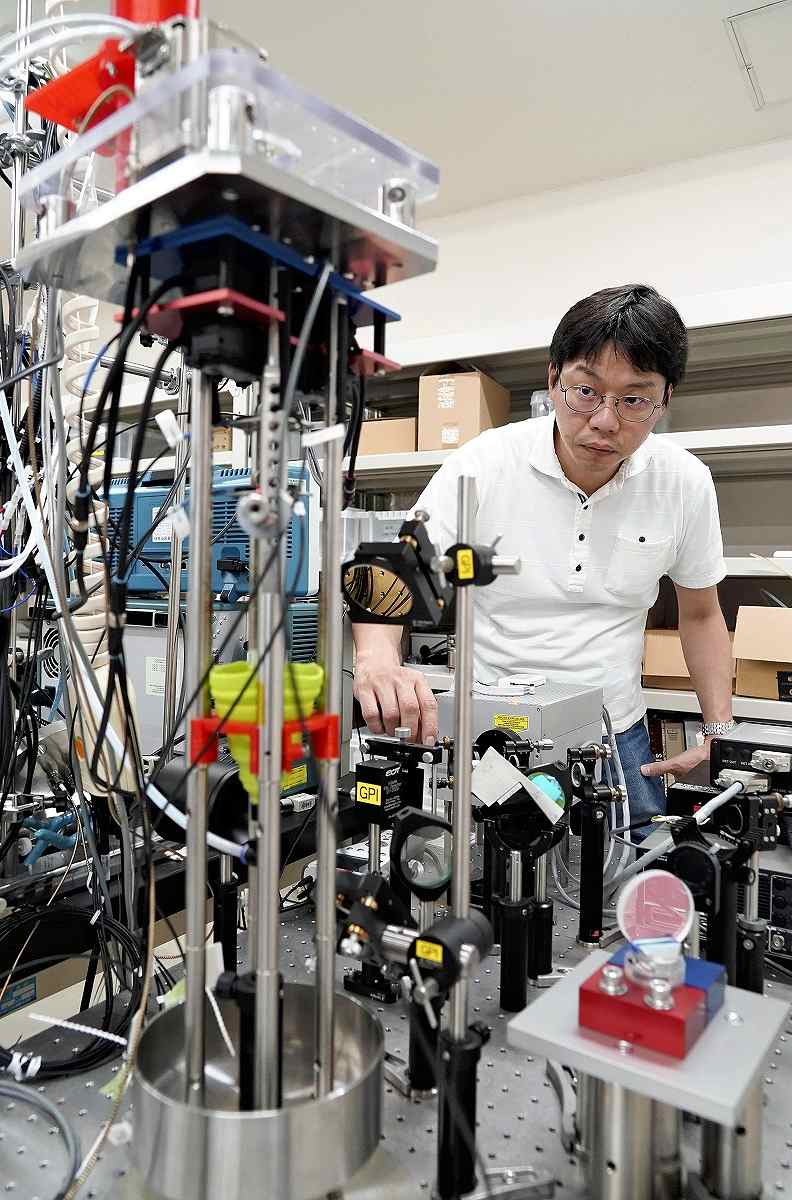Future World Order: Industrial Policies / Investment Key for Development of Innovative Japan N-Tech

A scientist works at a development base of EX-Fusion in Hamamatsu, Shizuoka Prefecture, on Sept. 21.
7:00 JST, November 5, 2023
This is the fourth installment of a series that reports on security-focused, public-private industrial policies.
***
On a typical day, assembly line workers manufacturing high-performance magnets refer to numerical data on display devices at a plant of Commonwealth Fusion Systems (CFS), a Massachusetts startup focused upon realizing nuclear fusion power generation — a “dream” energy source.
The sun combines atomic nuclei, including deuterium, to produce vast amounts of energy. Advocates of nuclear fusion power generation aim to replicate that process here on Earth, and there is intense competition to do so among various nations and entities, including the multinational ITER project involving Japan, the United States, the European Union and other nations.
When the U.S.-based Lawrence Livermore National Laboratory announced in December that it had succeeded in reaping more energy from a fusion experiment than had been put in, startups with related technologies began attracting considerable attention, resulting in an unprecedented boom within the industry.
Brandon Sorbom, chief scientific officer of CFS — which in 2021 attracted investment of $1.8 billion (about ¥270 billion) — said the powerful magnets developed by the company will make it possible to shrink the size of nuclear reactors, significantly slashing costs and construction times. Sorbom also opined that nuclear fusion reaction was no longer a concept for the distant future.
Japan companies, too, are making steady efforts in the field, including EX-Fusion in Suita, Osaka Prefecture, a startup that aims to begin operating a demonstration reactor in 2035 using laser technology developed at Osaka University.
However, the company’s chief revenue officer, Koichi Masuda, expressed concerns over the issue, saying: “In terms of financial strength, there’s a huge between us and startups in Europe and the United States, even though we’re ahead of the competition in terms of technology. It’s a common problem for Japanese startup firms.”
Investment disparity
Funding is vital if promising technologies are to become industrially competitive, but Japanese startups attract less than 150 times the amount of investment pulled in by U.S.-based firms.
The Japanese government has been supporting research and development in the field of regenerative medicine that uses induced pluripotent stem (iPS) cells, injecting ¥110 billion over a 10-year period through fiscal 2022.
However, once clinical trials aimed at practical use begin, the Japanese government reduces its financial support, causing many projects to falter due to a lack of sufficient funds.
To address this problem, some companies reach out to overseas investors, which are generally more positive about startup ventures.
Heartseed Inc. — a Tokyo-based startup with ties to Keio University that has been working on cardiac regenerative treatment using iPS cells since 2015 — has raised more than ¥10 billion from European pharmaceutical companies, as well as Japanese and foreign investors.
“If we’re to expand industries with Japanese technologies, we need government support to help clear the final hurdles prior to commercialization,” said Heartseed President Keiichi Fukuda.
The government has been striving to improve its support system by establishing an international hub for startups, among other measures, but the project is still in its initial stages.
Waseda University Prof. Hirokazu Hasegawa, a specialist in business administration, said, “The government must focus on fostering entrepreneurs who can lead the way by setting up bases for [international] exchanges, and by dispatching promising young people abroad.”
Top Articles in Politics
-

Japan PM Takaichi’s Cabinet Resigns en Masse
-

Sanae Takaichi Elected Prime Minister of Japan; Keeps All Cabinet Appointees from Previous Term
-

Japan’s Govt to Submit Road Map for Growth Strategy in March, PM Takaichi to Announce in Upcoming Policy Speech
-

LDP Wins Historic Landslide Victory
-

LDP Wins Landslide Victory, Secures Single-party Majority; Ruling Coalition with JIP Poised to Secure Over 300 seats (UPDATE 1)
JN ACCESS RANKING
-

Japan PM Takaichi’s Cabinet Resigns en Masse
-

Japan Institute to Use Domestic Commercial Optical Lattice Clock to Set Japan Standard Time
-

Israeli Ambassador to Japan Speaks about Japan’s Role in the Reconstruction of Gaza
-

Man Infected with Measles Reportedly Dined at Restaurant in Tokyo Station
-

Videos Plagiarized, Reposted with False Subtitles Claiming ‘Ryukyu Belongs to China’; Anti-China False Information Also Posted in Japan






















